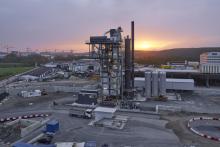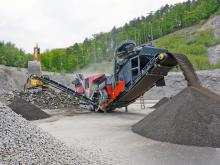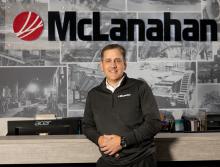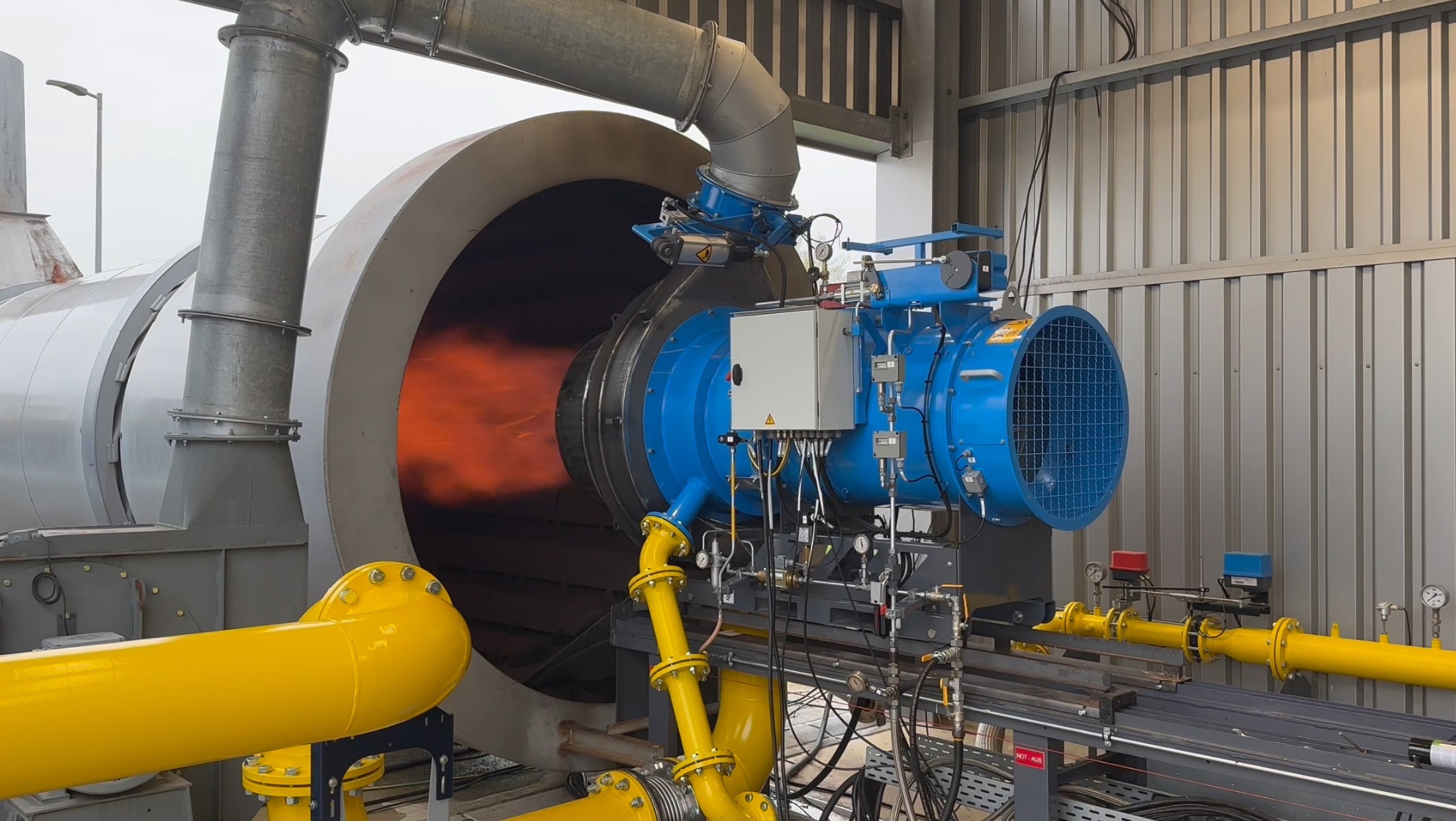
The first customer has already used it to produce several thousand tons of asphalt with virtually no emissions.
Asphalt production is the biggest factor in making future road construction more sustainable. The most eco-friendly energy sources are low-temperature asphalt, recycling content of up to 100% reclaimed asphalt, and hydrogen. They are sustainable, future-proof, and economical solutions for substantially reducing emissions.
Asphalt production requires a thermal process. Industrial burners heat and remove the moisture from the starting material – mineral and/or reclaimed asphalt – before mixing it with bitumen. To make this process as efficient as possible, Benninghoven, a Wirtgen Group company, has developed a new burner generation that comprises the burner, the control system, and the drying system. Up to four different fuels can be used with this system simultaneously. This flexible use increases economic efficiency as the plant owner can always use the optimum available energy source at any given time.
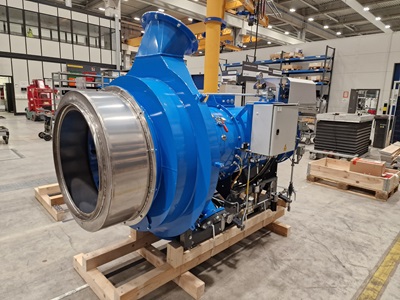
The hydrogen burner from Benninghoven is supplied with an intelligent control system, as the coordinated hardware and software solution ensures an efficient asphalt production process. This includes, among other things, controlling the feed systems, including the pressure regulating section and the drying section with burner and burner control. Fuels or fuel combinations can be changed on the fly, i.e., without a shutdown, without downtime and with minimised temperature fluctuations in the process. The emissions, especially the nitrogen oxides (NOX) produced during hydrogen firing are very low.
In addition to the climate-friendly and flexible use of different fuels, the manufacturer has lowered the electrical power consumption by 20 % with the same feed capacity. The heat transfer efficiency was increased significantly through the optimum use of the combustion chamber and a burner control and design that ensures an optimum flame with any energy source.
Another significant advantage for plant owners, especially at urban sites, is the 5-dB reduction in noise emissions.
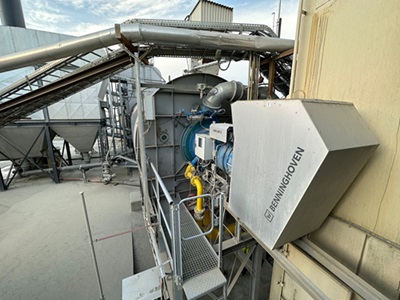
Green hydrogen is currently the most sustainable fuel available. It generates no greenhouse gases, and its high energy density makes it ideal for thermal processing. Plant owners looking to use hydrogen as an energy source often face infrastructure limitations. Asphalt mixing plant specialist Benninghoven can help customers overcome these challenges with its network.
The burner technologies from Benninghoven can be used in new plants and existing asphalt mixing plants. Retrofit solutions can also be added to plants from other manufacturers. This allows all plant owners to change to the latest technologies at any time – a key aspect for economical, sustainable asphalt production and securing the site in the long term.




